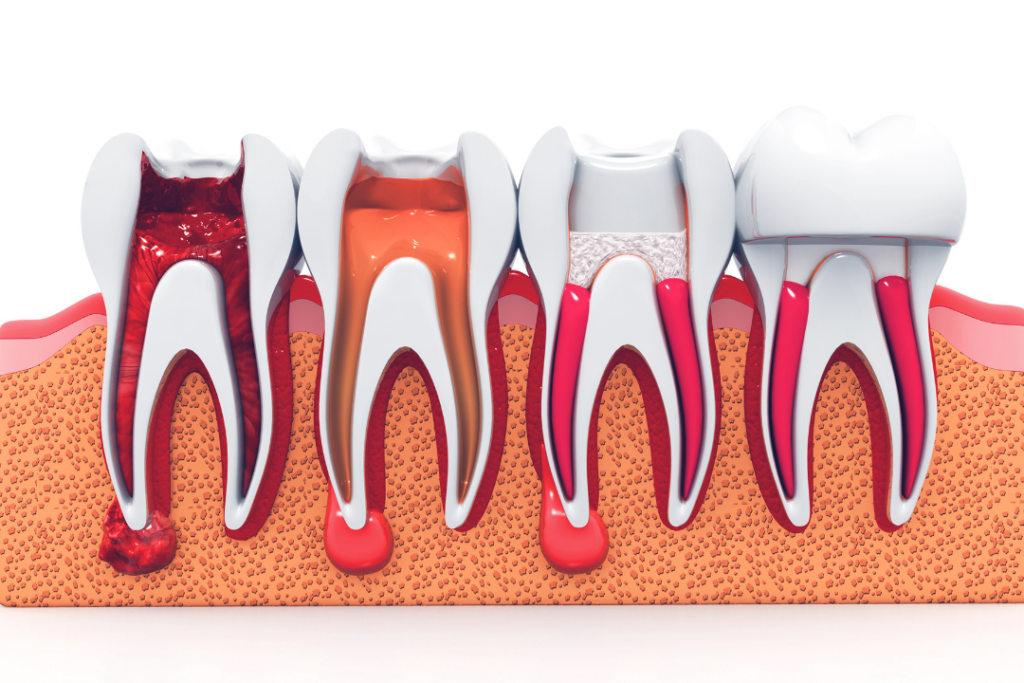Root Canals

A root canal is a dental procedure used to treat infection or damage within the tooth’s pulp (the innermost part containing nerves and blood vessels). This treatment saves the tooth from extraction and alleviates pain while restoring its function.
Reasons for a Root Canal:
- Deep Decay: Extensive tooth decay that reaches the pulp.
- Infection: Bacterial infection causing an abscess or severe pain.
- Injury: Cracks or chips exposing the pulp.
- Repeated Dental Procedures: Multiple treatments on the same tooth can lead to pulp damage.
Procedure:
- Diagnosis: The dentist evaluates the tooth through examination and X-rays to assess the extent of damage or infection
- Anesthesia: Local anesthesia is administered to numb the affected area.
- Pulp Removal: The dentist creates an opening in the tooth’s crown to access and remove the infected or damaged pulp.
- Cleaning and Shaping: The root canals are cleaned, disinfected, and shaped using small instruments.
- Filling: The cleaned canals are filled with a biocompatible material called gutta-percha and sealed to prevent future infection.
- Restoration: A temporary filling is placed, and later, a crown or permanent filling is used to restore the tooth’s structure and function.
Aftercare:
- Pain Management: Mild discomfort or sensitivity is common after the procedure, manageable with over-the-counter pain relievers.
- Oral Hygiene: Maintain good oral hygiene by brushing, flossing, and regular dental check-ups to ensure long-term success.
- Diet: Avoid chewing on the treated tooth until it’s fully restored with a crown or filling.
Benefits:
- Pain Relief: Eliminates the source of infection and pain.
- Tooth Preservation: Saves the natural tooth, maintaining the integrity of the jawbone and surrounding teeth.
- Function Restoration: Restores normal chewing and biting capabilities.
